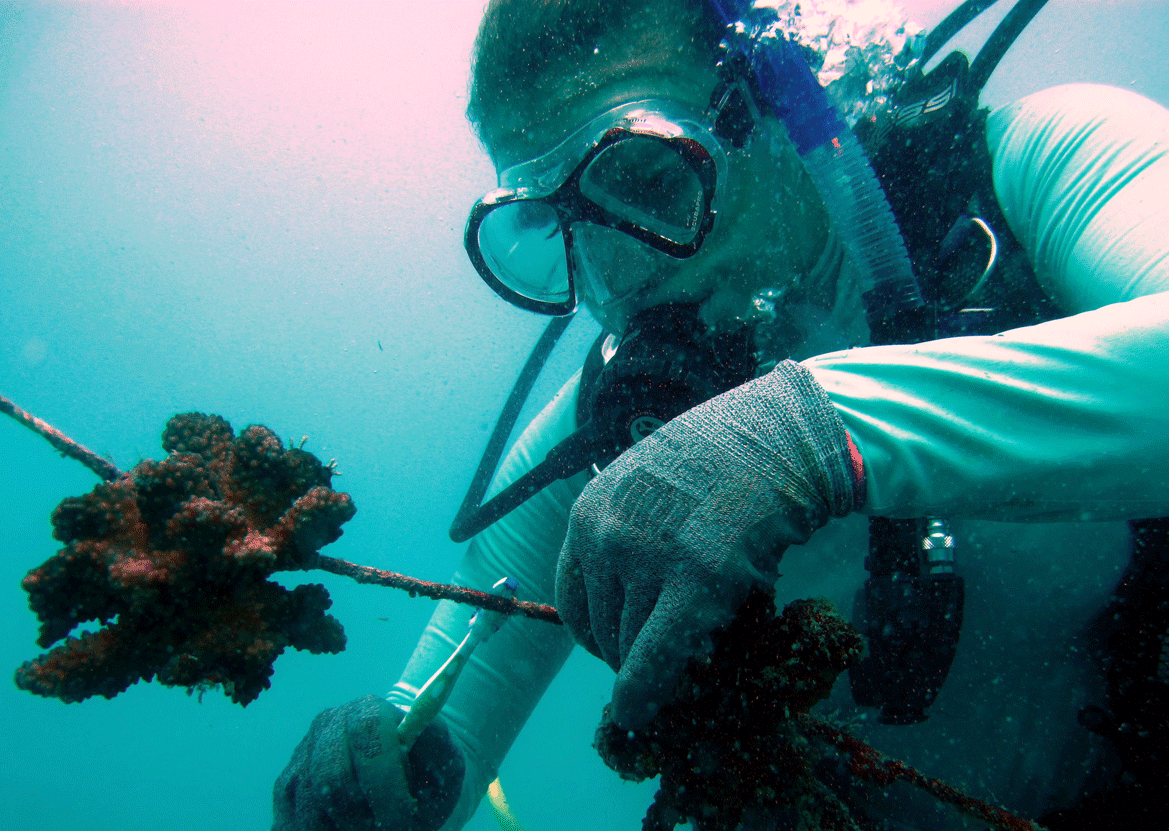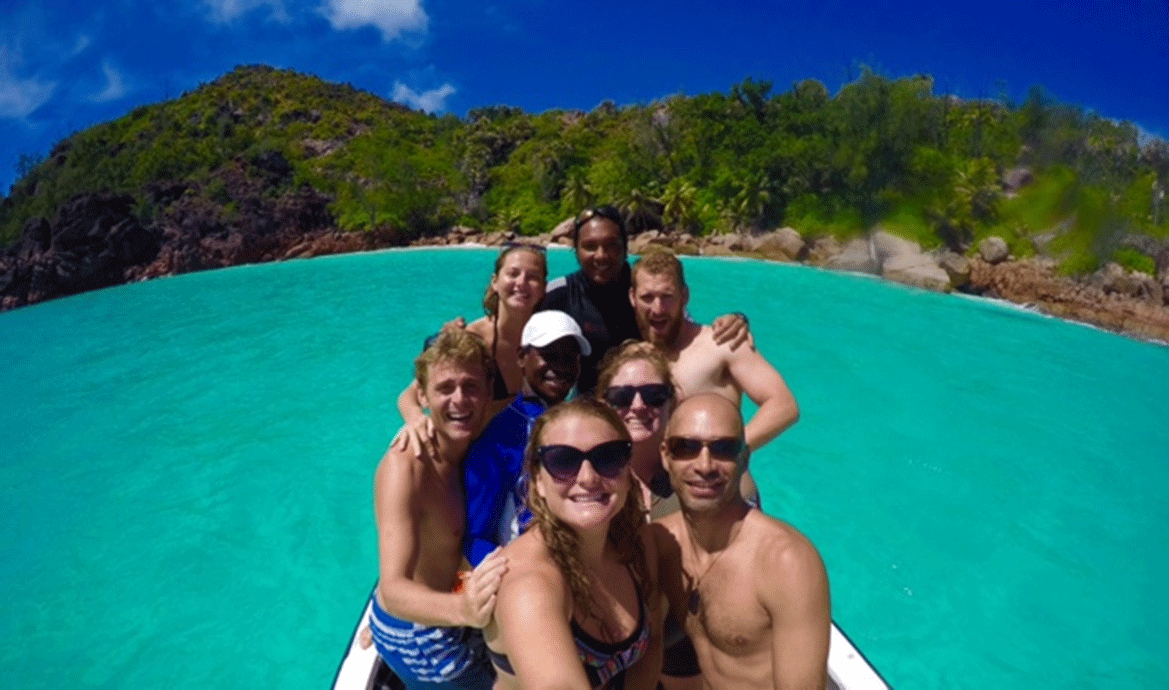I was inspired by the dedication and passion shown by Nature Seychelles and the Reef Rescuers Project. To see such a successful large scale reef restoration project really solidifies the concept of active conservation. We can no longer be passive towards the tragedies facing our oceans. It is our responsibility to participate in active restoration to preserve fundamental key species in our oceans. Through projects like the reef rescuers project we can begin to bring hope to our oceans current predicament.
I was honored to have this opportunity to learn from not only Dr. Sarah Frias-Torres and Dr. Phanor H Montoya-Maya but the other trainees in the Reef Rescuers Training Program. To be immersed into such a hardworking incredible group reaffirms my career path towards conservation and research. Dr. Sarah Frias-Torres and Dr. Phanor H Montoya-Maya are not only incredible scientists. They are exceptional teachers and mentors as well.
It was wonderful to have the ocean as our classroom for six weeks. The reef rescuers training program has opened my eyes to the possibilities that lay ahead for our particular field. I not only walked away from this experience with more knowledge than I could have ever hoped for but I also gained friendships with some beautiful people devoted to preserve the vitality of our oceans.

INTERVIEW
Which is your view of the Reef Rescuers project?
The Reef Rescuers project proves that no matter how challenging a task may seem, it can be accomplished through the work of passionate individuals. I was amazed by the magnitude of this project and the vast beauty at the transplantation sites. Through the Ref Rescuers project, Nature Seychelles was able to bring back life to a once barren reef. I think that this project has proved that large scale restoration is not only possible but vital to the survival of corals throughout the world. I applaud all the work that numerous individuals have to put in to make this dream a reality. The Reef Rescuers are bringing hope to the restoration of an irreplaceable species that perpetuates biodiversity throughout our oceans.
What of the Reef Rescuers Training Course?
The Reef Rescuers Training course was incredibly informative and expertly designed to prepare us for constructing our own Reef Restoration Projects. Through academic, open water, and field sessions we became knowledgeable in all aspects pertaining to a successful restoration project. I was inspired by the amount of knowledge Dr. Sarah Frias-Torres and Dr. Phanor H Montoya-Maya have acquired throughout their careers. Furthermore, they were excellent teachers who were able to relay the information in a unique, interactive way. I walked away from this training program with more knowledge than I could have ever expected and I am very thankful for this opportunity.
You have chosen a project based in Florida, why is that?
I chose a project in the Florida Keys because there has been an immense decline of coral cover over the years. The amount of coral cover in the Keys has gone from around 50% in the 1970s to less than 5% currently. This has been largely attributed to rising sea surface temperatures, overfishing, disease and pollution. Although this area has been through it all, there are still successful populations of soft corals and sponges in the area which means there is a possibility for success with a profound restoration effort. The Keys are in dire need of large scale restoration projects and I hope to make a difference there in the future.

What do you think would be the most interesting research proposals to do around your project?
I proposed the research question: Has there been successful spawning/reproduction events taking place in the newly constructed reef? I think this is an interesting research opportunity because it will further demonstrate the success of the newly restored reefs to survive on a long term basis through self recruitment. It can also give insight into the spawning events and seasons of occurrence surrounding the transplanted area.
Another research proposal I had was to implement a restoration effort for the sea urchin, Diadema antillarum, on the transplantation site. This was a key species surrounding the success of coral development throughout the Keys, until they experienced an immense die-off in 1983. After this die-off macroalgae began to cover much of the reefs preventing the settlement of new coral recruits, and increasing competition for space amongst various reef organisms. I think that this would be an incredibly helpful project to increase the optimum success for the newly constructed reef with help from a natural ally.
You are just now completing your university degree, what are your career goals?
The Reef Rescuers program has really helped me focus my intentions for my degree when I graduate. I am now confident that I would like to partake in restoration, conservation, and/or research in our field. To see all that my fellow Reef Rescuers Trainees have accomplished and are continuing to build upon, solidified the importance of obtaining this degree.
by Danielle Becker, Reef Rescuers Trainee, July - September 2015

